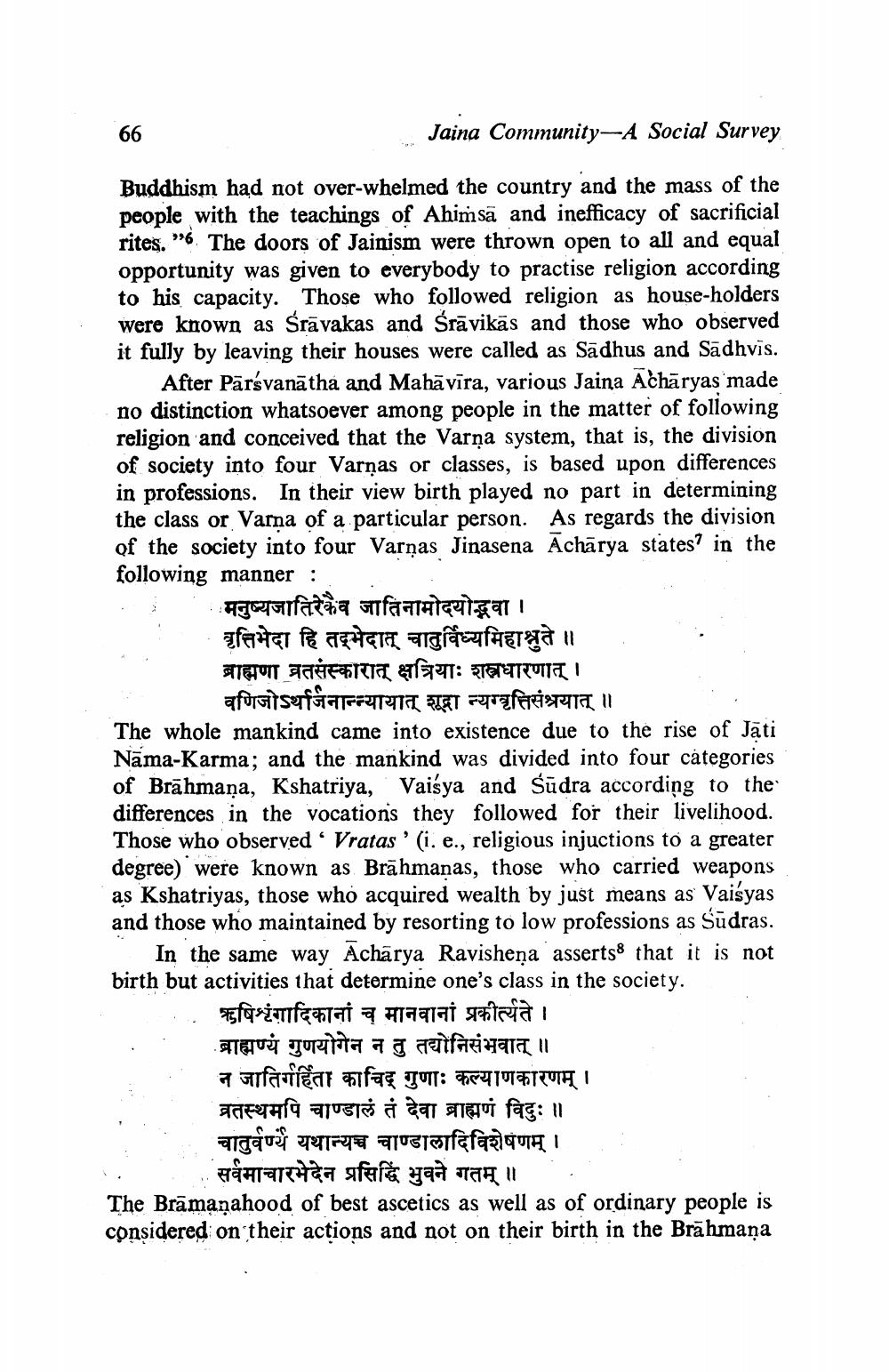________________
66
Jaina Community-A Social Survey
Buddhism had not over-whelmed the country and the mass of the people with the teachings of Ahimsā and inefficacy of sacrificial rites.". The doors of Jainism were thrown open to all and equal opportunity was given to everybody to practise religion according to his capacity. Those who followed religion as house-holders were known as Śrāvakas and Śrāvikās and those who observed it fully by leaving their houses were called as Sādhus and Sadhvis.
After Pārsvanātha and Mahāvīra, various Jaina Achāryas made no distinction whatsoever among people in the matter of following religion and conceived that the Varna system, that is, the division of society into four Varnas or classes, is based upon differences in professions. In their view birth played no part in determining the class or Varna of a particular person. As regards the division of the society into four Varnas Jinasena Achārya states in the following manner :
मनुष्यजातिरेकैव जातिनामोदयोद्भवा । वृत्तिभेदा हि तभेदात् चातुर्विध्यमिहाभुते ॥ ब्राह्मणा व्रतसंस्कारात् क्षत्रियाः शस्त्रधारणात् ।
वणिजोऽर्थार्जनान्न्यायात् शूद्रा न्यग्वृत्तिसंश्रयात् ॥ The whole mankind came into existence due to the rise of Jāti Nāma-Karma; and the mankind was divided into four categories of Brāhmaṇa, Kshatriya, Vaisya and Sūdra according to the differences in the vocations they followed for their livelihood. Those who observed · Vratas ' (i. e., religious injuctions to a greater degree) were known as Brāhmanas, those who carried weapons as Kshatriyas, those who acquired wealth by just means as Vaisyas and those who maintained by resorting to low professions as Sūdras.
In the same way Acharya Ravishena asserts that it is not birth but activities that determine one's class in the society.
Efqsiniferati a 71aqtai sairiai ब्राह्मण्यं गुणयोगेन न तु तद्योनिसंभवात् ॥ a न जातिर्गर्हिता काचिद् गुणाः कल्याणकारणम् ।
for व्रतस्थमपि चाण्डालं तं देवा ब्राह्मणं विदुः ॥ चातुर्वण्य यथान्यच्च चाण्डालादिविशेषणम् ।
सर्वमाचारभेदेन प्रसिद्धिं भुवने गतम् ॥ The Bramaņahood of best ascetics as well as of ordinary people is considered on their actions and not on their birth in the Brāhmaṇa




